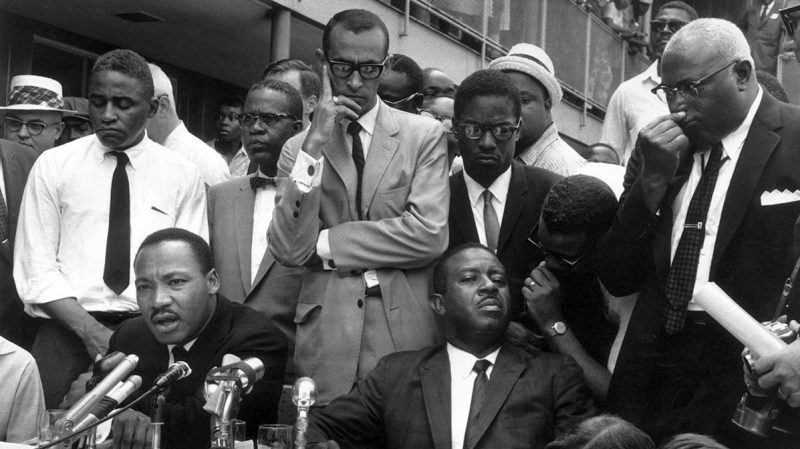
The NAACP reiterated its opposition to charter schools last week, denying that school choice is linked to civil rights.
Their position has been strongly contradicted by civil rights icon Wyatt Tee Walker. Walker served as Martin Luther King Jr.’s chief of staff, as head of the Southern Christian Leadership Conference and as a central figure in the famous Birmingham civil rights march.
In June 2016, Walker was awarded the Charter Schools Lifetime Achievement Award by the National Alliance for Public Charter Schools. The honor had only been granted to one other person: former president Bill Clinton.
In a video interview with Walker given before his acceptance of the Lifetime Achievement Award, he described charter schools as a key human rights initiative. When asked whether Dr. King would have also supported charter schools, Walker replied:
“Oh, yes, without a doubt. Because [Dr. King] knew how important a good education was. All the people he surrounded himself with were very well-educated, and had good education, and saw the big picture. And we saw it as a complement to what we were doing….Dr. King saw very instantly and clearly that education was a prime prerequisite for what we were doing, and a complement to the Civil Rights Movement.”
The full video interview with Walker, exclusive to RealClearLife, can be viewed below.
-“We Shall Overcome” performed by Bryan Pezzone courtesy of AIX Records.
An award-winning book, A Light Shines in Harlem, has been written about Walker’s work with his co-founders to start the Sisulu-Walker school. The book won the Phillis Wheatley Award for best nonfiction book of the year from the QBR: The Black Book Review and the Harlem Book Fair in 2015. The book was also named as one of the top education books of the year by Harvard University’s EducationNext, called a “must-read” by The Center for Education Reform, and praised as “an incredible story” by The Huffington Post. The book was reissued in paperback in April by publisher Lawrence Hill Books (an imprint of Chicago Review Press).
In his foreword to A Light Shines in Harlem, Dr. Walker wrote:
In 1959, while still a young minister in Virginia, I organized and led the first local Prayer Pilgrimage for Public Schools, an event that protested Virginia state officials’ attempts to block public school integration. Forty years after my foray into human rights and the struggle for justice, in 1999, as a senior minister in Harlem, I joined with others as part of another nonviolent revolution and march for justice, forming the first charter public school in the state of New York. This book is a history of that pioneering school and its formation, and of the movement for better public schools for all of America’s children.
….What made me join the charter school movement?
The movement for justice, of which I was a frontline participant, taught me the importance of quality education. The congregation in Harlem that I ministered for thirty-seven years chiefly served the children of District Five of the public school system of New York City; a district which had long been judged nonperforming and unable to produce students who were proficient in reading, math, and the sciences.
As I worked on other justice issues (housing, employment), I was frustrated that I had no tools to better the school system that served the families of my congregation. Was not the matter of quality education a justice issue also? I became convinced that quality education was the undeniable complement of the struggle that I had given my life to.
That’s what led me to dive into the charter school movement. I have no regrets whatsoever. All of the experience I gained in the human rights struggle was applicable to this new frontier of human rights. In my most reflective moments, I believe this is where Dr. King would be if he were still alive!
In the charter school movement, I am continuing the work of Dr. King that has far-reaching meaning. Every American child is deserving of a quality public school education. It is education that will guarantee that segregation and second-class citizenship will never return!
The Charge will help you move better, think clearer and stay in the game longer. Subscribe to our wellness newsletter today.